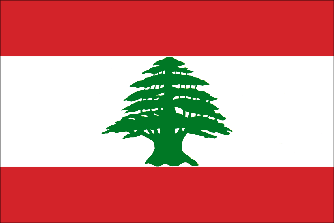
Politics in Modern Lebanon, after french Independence.
Lebanon is a parliamentary democratic republic.The Lebanese constitution states: “Lebanon is a parliamentary democratic
republic based on respect for public liberties, especially the freedom
of opinion and belief, and respect for social justice and equality of
rights and duties among all citizens without discrimination.”
From Wikipedia: A parliamentary system is a system of democratic governance of a state where the executive branch derives its democratic legitimacy from the legislature (parliament) and is also held accountable to that legislature. In a parliamentary system, the head of state is normally a different person from the head of government. This is in contrast to a presidential system
in a democracy, where the head of state often is also the head of
government, and most importantly, the executive branch does not derive
its democratic legitimacy from the legislature.
In addition to the Lebanese Constitution, under the National Pact an unwritten agreement between Shi’ite, Sunni, and Maronite leadership in 1943, laid the foundation of Lebanon as a multi-confessional state, having shaped the country to this day.
Lebanon is part of the Arab League but is NOT an Islamic state. When the Lebanese State’s
geographical boundaries were set by the French Mandate back in the
1920’s, the Maronite Christians (who follow the Catholic Church in Rome)
were meant to form the majority of the Lebanese Population (60%). Thus,
the President of the Republic, who is intended to be the representative
of the Maronites in the government, has been granted wide powers in
order to reflect the Maronites’ demographical dominance, this has been modified slightly after the ta’ef accord.
The president of the country must be a Maronite, the Prime Minister must be a Sunnite, and the Speaker of Parliament must be a Shiite. Then most recent amendment of the Constitution was the Charter of Lebanese National Reconciliation (Ta’if Accord), in October, 1989.within the overall framework of confessionalism, a form of consociationalism in which some of the powers were amended inn the constitution.
The constitution
grants the people the right to change their government. However, from
the mid-1970s until the parliamentary elections in 1992, civil war
precluded the exercise of political rights. According to the
constitution, direct elections must be held for the parliament every 4
years. The last parliamentary election was in 2009.[1] The Parliament, in turn, elects a President
every 6 years to a single term. The President is not eligible for
re-election. The last presidential election was in 2008. The president
and parliament choose the Prime Minister. Political parties may be formed; most are based on sectarian interests. 2008 saw a new twist to Lebanese politics when the Doha Agreement
set a new trend where the opposition is allowed a veto power in the
Lebanese Council of Ministers and confirmed religious Confessionalism in
the distribution of political power.
The Lebanese legal system is based on and inspired by the French legal system. Just like France, which occupied Lebanon until 1943, Lebanon is considered to be a civil law country and possesses its own set of codes. The most notable code is the “Code of Obligations and Contracts” promulgated in 1932 during the French Mandate. The COC, as it is known among law students, is the equivalent of the French Civil Code except for matters related to personal status (heritage, marriage, divorce, etc.), which are governed by a separate set of laws designed for the different sectarian communities. For instance, the Islamic personal status laws are inspired by the Islamic Sharia’a, some of which were promulgated during the Ottoman rule (ending in 1918)
Lebanese individuals are also known to be natural-born entrepreneurs. The Lebanese community living abroad consists of approximately 15 million people, almost four times the Lebanese population living in the homeland, and is considered in its respective host countries as an economic force to be reckoned with.
Civil courts are divided into:
First degree courts, which are constituted by one Judge or a panel of three judges, and are in charge of examining civil law claims. The “one judge courts” usually examine claims of a lesser value than the ones examined by the “three judge panels”. Courts of Appeal, which are based in each governorate, and are mandated to serve as a second degree court reviewing the decisions of the lower court. Court of Cassation, which serves as the ultimate judicial recourse, reserved to review cases of a certain value/importance.
The Commercial Courts:
Fall under the same category as civil courts but are competent in ruling over commercial matters.
The Criminal Courts:
Same structure as the Civil and Commercial Courts, but with a certain particularity: The first degree courts are in charge of examining felonies and misdemeanors subject to the review of the Court of Appeal.
The Court of Appeal serves as a second degree court for felonies and misdemeanors and as a first degree court for the more serious criminal offenses subject to the review of the Court of Cassation.
The Personal Status Courts:
They are constituted of members of the clergy and are in charge of ruling on personal status cases exclusively for the members of their own sects. The rulings of the Personal Status Courts and their decisions are subject to the review of the higher Civil Courts.



